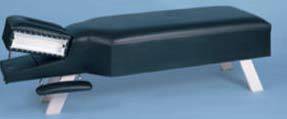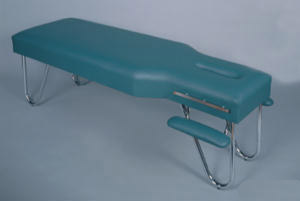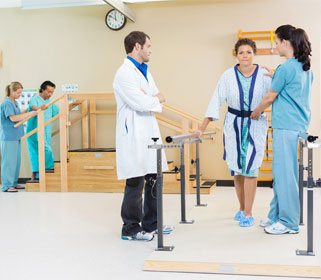Home » Rehabilitation Equipment & Products » Tilt Tables For Unique Procedures & Patient Positioning » Tilt Tables For Unique Procedures & Patient Positioning
Tilt Tables For Unique Procedures & Patient Positioning

Chiropractic Adjustment Table
Retail Price: $1,230.00
Your Price: $985.00
 Unit: single
Unit: single

Chiropractic Adjustment Table with Arm Rest
Retail Price: $890.00
Your Price: $670.00
 Unit: single
Unit: single
Tilt tables are designed to allow the patient to be moved into any position from a reclining position to a full upright position. They are often used in cardiac testing procedures as well as for procedures with bariatric patients, orthopedic patients and in a variety of therapeutic treatments. Having a tilting table available when needed can provide security, safety and comfort to a patient even if they are unable to hold an upright position without assistance.
Tilt tables can be electric, manual crank or they can be fully powered to offer a hi-low option for easy access from wheelchairs and assisted mobility devices. The hi-lo tables can be lowered in a horizontal position to just 19 inches, allowing the patient to be easily transferred to the table. Once the patient is on the table and secured with the safety straps the table can be raised and tilted to the desired position. Not only is the patient completely secure during the whole positioning operation but electric operated actuators prevent any jerky movements that may cause stress or anxiety for the patient.
Electric tables are a great option for patients that may not require a hi-lo table. These tables are controlled with hand controls that can be operated on either side of the table. The table height on these models is set, typically at 33 inches, and from this height a full tilt of up to 90 degrees can be controlled by the technician or medical staff member. All models of tilt tables, including those that are operated by a hand crank mechanism, have a tilt indicator to provide accuracy in positioning the patient. Comfortable foot boards allow the patient to bear weight on the feet while they are held in place against the board by the wide safety straps.
Tilt tables can be mobile tables and generally all models will have four locking casters at each corner of the table frame. When in the correct position they can be locked in place to prevent any type of movement. The table can be lowered to the horizontal position and the patient can also be moved on the table if necessary. The urethane foam top and durable upholstery on the table provides comfort for the patient but also an easy to clean and maintain surface for staff.
Weight capacities of tables vary with the model. Power tables tend to be approved for more weight while the hand crank models are usually approved for patients 300 pounds or less. Bariatric tilt tables are available with electric tilt features that can safely position patients up to 500 pounds. These tables are also slightly larger with up to 34 inch widths and 77 inch lengths to comfortably support larger individuals.
It is important to keep in mind that tilt tables are not the same as inversion tables. Inversion tables allow the patient to rock and invert their body, relieving pressure and tension on the spine as the weight is supported through the legs and hips. Tilt tables, on the other hand, keep the patient in a normal position on an incline backwards between 0 and 90 degrees.















